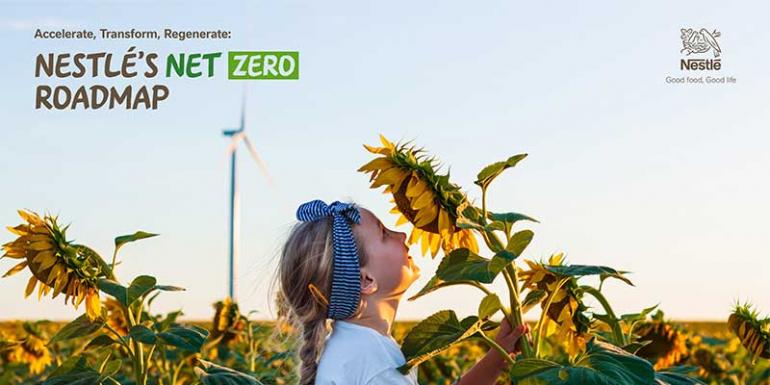Nestlé moves towards deforestation-free commodities

Nestlé has pledged to move beyond protecting forests to an approach that involves restoring them and helping them thrive with the aim of reaching net zero emissions by 2050. These actions build upon a decade of work to end deforestation in Nestlé’s key forest-risk commodities. As of December 2020, 90% of those key ingredients (palm oil, sugar, soy, meat as well as pulp and paper) were assessed as deforestation-free, but the Swiss multinational intends to pick up the pace and reach 100% by 2022.
Nestlé has used tools such as supply chain mapping, certification, on-site-verification and satellite monitoring services like Starling or Global Forest Watch to achieve this result. In addition, the company has collaborated with farmers, farming communities and suppliers on the ground.
“To meet the world’s food needs in 2050, agricultural production will have to increase by around half versus 2013 levels,” said Magdi Batato, Executive Vice President, Head of Operations at Nestlé. “It is more important than ever to protect natural ecosystems as we meet this challenge and to restore forests for the future.” He added that this forest positive strategy is key to regenerating Earth’s water systems, soil health and carbon storage.
Nestlé will promote a forest positive approach among its suppliers with the aim of creating sustainable landscapes and livelihoods. The company will reward suppliers for their environmental efforts by buying bigger quantities, contracting with them long term, co-investing in programmes that promote forest conservation and restoration, or by paying a premium for their products.
“Forest positive is only achievable if we work hand-in-hand with farmers and local communities, industry partners and governments to form wider solutions across local, regional and global levels,” added Batato. “The benefits are numerous: more resilient communities and livelihoods, more sustainable food systems, and a healthier planet.”
Image credits: Nesté



















